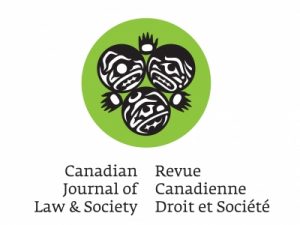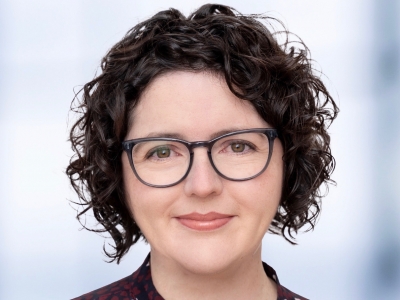
As we strive towards equity, diversity and inclusion in academia, practical solutions require resources, time and collective commitment.
 “Academic publishing is in crisis,” says Melanie Adrian, a professor in the Department of Law and Legal Studies, Carleton Chair in Teaching Innovation and founder of Carleton’s Scholars at Risk program.
“Academic publishing is in crisis,” says Melanie Adrian, a professor in the Department of Law and Legal Studies, Carleton Chair in Teaching Innovation and founder of Carleton’s Scholars at Risk program.
Adrian is also the managing editor of the Canadian Journal of Law and Society/La Revue Canadienne Droit et Société (CJLS/RCDS), housed at Carleton and published by Cambridge University Press. In January, CJLS launched the Scholar Collaboration Program/Le Programme de collaboration académique (SCP/PCA). This program supports scholars from the Global South and underrepresented communities to work towards publishing their research.
One of the problems in academic publishing, Adrian says, is that it relies heavily on volunteer work, including volunteer editors and reviewers. This means there is limited ability to mentor scholars from underrepresented communities who have great ideas, but may need some technical or substantive support to pass peer review. CJLS realized they needed a different stream of funding to implement the program, so they applied for a supplemental SSRHC grant.
The program aims to address the North-South divide in international knowledge production and contribute to the decolonization of academia in order to increase diversity and foster collaborative spaces. SCP/PCA pairs emerging scholars from underrepresented communities and the Global South with established scholars who have publishing expertise in the field of socio-legal studies.
Establishing the Program
 Professor Adrian has been collaborating with Çağlar Dölek, a contract instructor in Law and Sociology and a graduate of Carleton’s PhD in Sociology. Originally from Turkey, Dölek is an emerging international scholar with an interdisciplinary research agenda in the field of critical criminology with a focus on policing and social marginalization.
Professor Adrian has been collaborating with Çağlar Dölek, a contract instructor in Law and Sociology and a graduate of Carleton’s PhD in Sociology. Originally from Turkey, Dölek is an emerging international scholar with an interdisciplinary research agenda in the field of critical criminology with a focus on policing and social marginalization.
Building on his doctoral dissertation that was nominated for a Carleton University Senate Medal, Dölek is currently working on a book project on the social history of policing in modern Turkey that is under contract with Edinburgh University Press. Dölek also received the 2020 Open Education Excellence Award by the Carleton University Student’s Association.
In the initial stages, SCP hired Dölek as a PhD student to research different types of journals that have an emerging scholar support program and interview the editors of the most developed programs. “The research was based on a digital ethnography of mentorship based on in-depth interviews with editors of internationally renowned journals,” says Dölek.
Dölek found out how the programs were running and evaluated and reported on lessons learned to make the SCP/PCA stronger. The program is based on this reflective process of research into the best practices in writing mentorship in journal publishing.
“SCP is a collaboration,” says Adrian. “It’s not about a hierarchy of knowledge and scholarly worth. It is a collaborative enterprise between the scholars and their ideas and is grounded in principles of equity and dignity.”
“We need more journals to have similar programs. This is our small way of starting to collapse barriers to access academic publishing. We are living in a moment of exceptional change and openness. It’s exciting that we have this opportunity in this time — it’s a challenge, but it has the potential for substantial social change.”
Barriers to Academic Publishing
“While CJLS receives manuscripts from scholars who have great ideas, some haven’t had the experience of publishing in a peer-reviewed journal,” says Adrian. “They may lack the support to develop their academic writing, language, structure and style, so their ideas don’t get through peer-review. Without mentors and writing support, they end up having to pay out-of-pocket for non-field-specific mentoring in order to get published.”
Once accepted into the SCP/PCA, scholars will receive support and guidance from both a writing collaborator and academic collaborator to help them develop a manuscript. The writing collaborator will offer suggestions on how to improve writing style and structure.
The scholar will then be matched with an expert in their specific field who can recommend additional bodies of literature and give other substantive suggestions. SCP/PCA academic collaborators have research expertise in post-colonial studies, critical legal studies, feminist legal studies, legal anthropology, critical criminology and literary approaches to law.
“The hope is that the manuscript will be improved, but also that new scholars can connect on a professional level with an expert in their field who may be able to link them to other opportunities,” says Adrian.
The writing collaborator then takes a final read to polish manuscripts for peer-review with the aim of submitting it to CJLS for consideration. Adrian says, “Standards of peer-review are so important to maintain.”
Submitting a Manuscript
The Scholar Collaboration Program is for PhD candidates, postdoctoral fellows and emerging researchers and faculty who are in need of the resources offered by the program.
Manuscript submissions from scholars in underrepresented or minority communities and/or from the Global South are invited to apply to the first round of applications by March 15, 2021. For more information, please read the Call for Applications.
About the Canadian Journal of Law and Society
The Canadian Journal of Law and Society/La Revue Canadienne Droit et Société (CJLS/RCDS) is a bilingual periodical publishing innovative research in the broad field of law and society scholarship. Rooted in the distinctive Canadian Law and Society movement, CJLS features international scholarship concerning the intersection of law and sociology, cultural studies, literature, political science, criminology, history, human rights, gender studies and political economy.
Tuesday, February 16, 2021 in Department of Law and Legal Studies, News
Share: Twitter, Facebook



